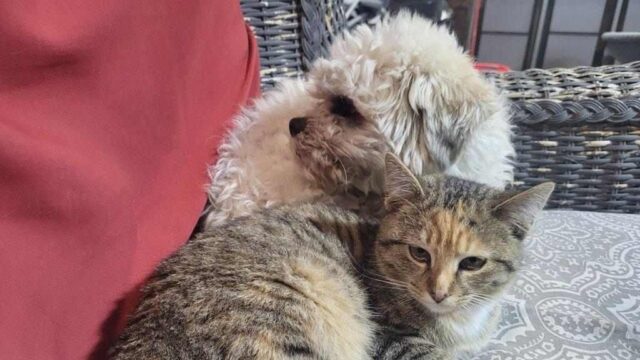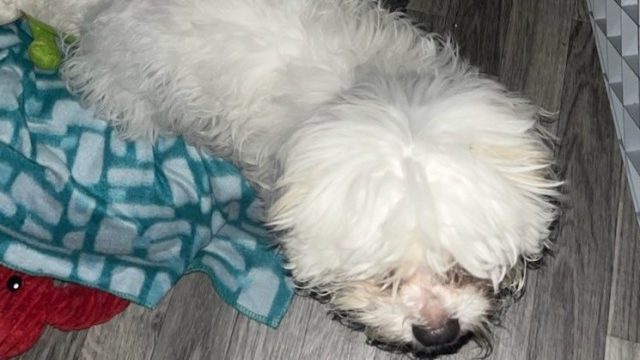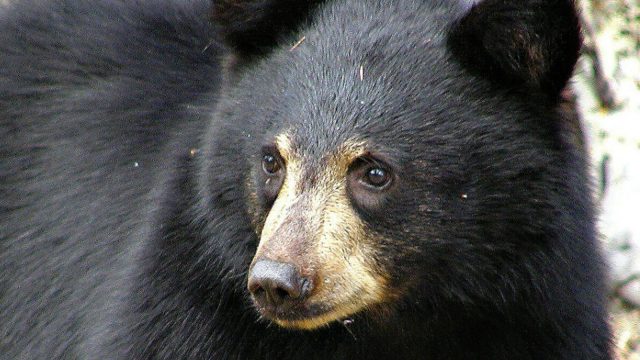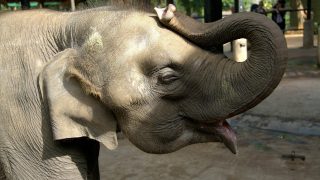
After Groundbreaking Animal Rights Ruling, Islamabad High Court Continues to Affirm Original Decision
By Nicole Pallotta, PhD, Senior Policy Program Manager
Contents
- 1 Summary/intro
- 2 Background and Initial Ruling
- 3 July 2020 Judgment: Animal Species Have Inherent Rights
- 4 November 2020: Kaavan Has Become a Beacon for the Recognition of Animal Rights Throughout the Globe
- 5 December 2020 Order: The Bears Were Imprisoned Without Having Committed a Crime
- 6 Conclusion
- 7 Further Reading
Summary/intro
Summary: In the months following a groundbreaking decision from the Islamabad High Court in Pakistan that animals have legal and natural rights, Chief Justice Athar Minallah issued three subsequent orders, each affirming the court’s original ruling and expressing continued interest in the animals’ well-being as they were transferred from a local zoo to sanctuaries that can meet their needs as wild animals.
“Kaavan” has become a symbol for the display of empathy and the need for humans to acknowledge that sentient animal species have natural rights . . . [He] is a symbol of hope for other animal species who are in distress and subjected to pain and suffering because of the misconceived display of power by the human species. – Chief Justice Athar Minallah, Islamabad High Court
Background and Initial Ruling
In April 2020, the Islamabad High Court recognized that animals have legal rights and are entitled to protection under the nation’s constitution. In a 67-page ruling, Chief Justice Minallah ordered the Marghazar Zoo to be shut down and the animals — whom he referred to as “inmates” — relocated to sanctuaries. He also asked whether animals have legal rights and found “the answer to this question, without any hesitation, is in the affirmative.”
At the heart of this case was Kaavan the elephant, who had captured global media attention and sympathy as “the world’s loneliest elephant.” Animal activists, including the celebrity Cher (who helped fund Kaavan’s legal case and relocation), campaigned for years to free him from the zoo, where he had been chained in solitary confinement for decades.
This ruling — summarized in a previous Animal Law Update — contained striking language about the rights of animals, including the right to an environment in which their behavioral, social, and physiological needs can be met. Chief Justice Minallah found that animals have natural and legal rights because they are sentient, living beings. Avoiding the over-complication that can sometimes plague discussions about animal rights — which rights for which animals? — he employs a commonsense approach grounded in animality, or the nature and needs of particular species. Each animal has a right to an environment that allows them to flourish.
Although Chief Justice Minallah roundly condemned the Marghazar Zoo — the clearly substandard zoo at issue — he did not stop there. He extended his criticism to all zoos that confine wild animals in conditions that are nothing like their natural habitats, and thus prevent them from engaging in normal behaviors.
In the wake of this historic ruling, Chief Justice Minallah issued three subsequent orders, each affirming the Court’s original decision that animals have legal rights and expressing continued interest in the well-being of the individual animals as they were transferred to new sanctuary homes that can fulfill their species-specific needs.
July 2020 Judgment: Animal Species Have Inherent Rights
In July 2020, the Islamabad High Court issued a follow-up judgment that provided an update on the relocation of Kaavan and other animals to sanctuaries. In addition, Chief Justice Minallah reaffirmed the animal rights arguments made in the first decision, noting that “Kaavan inspired many, including this Court, to recognize that animal species have natural rights.”
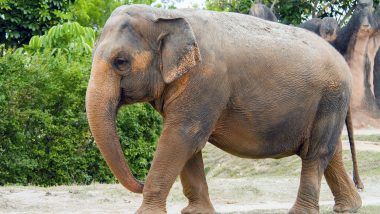
He also expressed appreciation for the Pakistani government in affirming the jurisprudence of the Court and acknowledging that animals have inherent rights. Chief Justice Minallah wrote it is “heartening” that the state endorsed the Court’s judgment because it has enabled Pakistan to set an international example that will hopefully inspire other nations to recognize that animals belong in their respective natural habitats, adding that zoos — even under the best circumstances — are inadequate.
This Court records its profound appreciation for the empathy, compassion and care displayed by the Federal Government and the Prime Minister of Pakistan, Mr Imran Khan, in particular. They have not only recognized and affirmed the jurisprudence explained by this Court in the Judgment but have simultaneously acknowledged that animal species have inherent rights and that humans have a fiduciary duty to jealously guard and protect those rights so as to save its own specie on this planet from becoming extinct. It is heartening because the Prime Minister of Pakistan and his Government, by endorsing the Judgment and giving effect to its jurisprudence, have enabled the State of Pakistan to take a lead amongst the comity of nations in the context of recognition of the principle that the right place and home for wild animals is their respective natural habitat and not the four walls or confined boundaries of a zoo, even under the best of circumstances and in the most well managed zoological gardens. It is a solemn affirmation of the principle that animal species are sentient and thus cannot be subjected to pain and suffering due to captivity in the environment of a zoo, unless it is absolutely necessary and is in the interest of the animal species.
The judgment also provided updates on not only Kaavan’s transfer but also other animals at the zoo who were not well-known causes célèbres, including a marsh crocodile, about whom Chief Justice Minallah wrote poignantly. The crocodile “had been kept in a small cage under extreme inhumane conditions” but was “released yesterday for its onward journey to its sanctuary.” Chief Justice Minallah continued:
The agony of the Marsh Crocodile ended this morning at 08:30 a.m. when the latter was safely and happily released in its natural home. . . . This Court observed, during the proceedings, the exceptional passion of Dr Anis ur Rehman, Chairman of the Wildlife Management Board for welfare of animal species. He could not hold his tears on several occasions when he used to describe the plight of the animals at the Zoo. He also could not hold his tears today when informing this Court regarding the end of the ordeal suffered by the Marsh Crocodile. But today the emotions were of joy.
Chief Justice Minallah also took this opportunity to ponder the nature of power. He argued that humans should not use their position of power to subjugate and imprison those who are dependent, but rather to protect and care for them. The latter is the sign of true power, he wrote, whereas dominating other species reflects weakness and arrogance.
Capturing a wild exotic animal, separating it from members of its specie and keeping it in captivity away from its natural habitat by humans can by no stretch of the imagination be construed as a sign or symbol of ‘power’. . . . Conversely, it reflects signs of weakness, arrogance and misuse of the superior qualities of one of the living species, resulting in disturbing the scheme of nature created by the Creator. Protecting and caring for the weak ought to be symbols of ‘human power’ and not subjugating and imprisoning those who are dependent on human species.
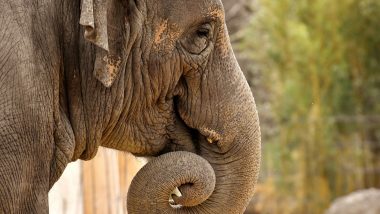 He noted the point was not that “under no circumstances can a wild animal be held in captivity” but rather that there must be a “compelling reason”— such as to protect abandoned animals from being harmed or to preserve endangered species — and that the “principle of proportionality” must be used as a test to justify captivity. Most importantly, “wild animals have to be treated as an end in themselves and not a means for the mere entertainment of humans.”
He noted the point was not that “under no circumstances can a wild animal be held in captivity” but rather that there must be a “compelling reason”— such as to protect abandoned animals from being harmed or to preserve endangered species — and that the “principle of proportionality” must be used as a test to justify captivity. Most importantly, “wild animals have to be treated as an end in themselves and not a means for the mere entertainment of humans.”
Chief Justice Minallah wrote movingly of Kaavan’s story, which inspired the Court to recognize that animals have inherent rights:
In a few days ‘Kaavan’, who was separated from his mother and other family members when he was only a year old, would also embark on his final journey to the Cambodia Wildlife Sanctuary. He has indeed suffered in silence for more than thirty six years. He could only convey the extreme distress, pain and suffering by bobbing his head against the wall for almost thirty six years. It was definitely cruel treatment of a gentle and majestic creation. In his unimaginable pain and suffering he became an advocate and spokesperson for the recognition of the inherent rights of other animal species. He inspired many, including this Court, to recognize that animal species have natural rights and that they cannot be unnecessarily deprived of living in natural habitats, thereby disturbing the balance maintained in nature i.e., the scheme of the Creator. Kaavan will soon be starting a new life as an ‘elephant’. He will have the opportunity to feel like an ‘elephant’ rather than a captive ‘object’, subjected to distress and pain for the purposes of being displayed to humans. ‘Kaavan’, hopefully, will have a happy ending and the jurisprudence he inspired this Court to lay down may find relief for many other animal species.
Finally, the order required weekly progress reports on the relocation efforts and directed the Ministries of Climate Change and Foreign Affairs to ensure prompt issuance of visas to those responsible for transferring the animals to sanctuaries outside of Pakistan to ensure they are not unduly delayed.
Chief Justice Minallah closed with a powerful quote: “’The only creature on earth whose natural habitat is a zoo is the zookeeper.” He also added a hopeful note about the future:
The passion of all these true representatives of the human species, the youth in particular, observed by this Court during the proceedings, is the much needed hope for meeting the challenges of climate change and for making the planet a place to live in conformity with the balance created by nature.
November 2020: Kaavan Has Become a Beacon for the Recognition of Animal Rights Throughout the Globe
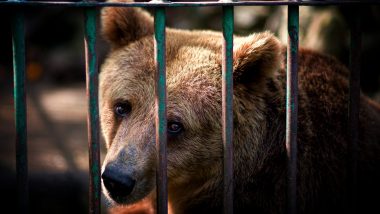 In November 2020, a representative of the Islamabad High Court informed the Animal Legal Defense Fund “with great joy” that Kaavan the elephant and two Himalayan bears had been safely relocated to a sanctuary in Cambodia. The Court also issued an order “to wish Kaavan well,” which like the previous judgments contains important language about animal rights.
In November 2020, a representative of the Islamabad High Court informed the Animal Legal Defense Fund “with great joy” that Kaavan the elephant and two Himalayan bears had been safely relocated to a sanctuary in Cambodia. The Court also issued an order “to wish Kaavan well,” which like the previous judgments contains important language about animal rights.
As in his initial ruling, Chief Justice Minallah again noted the connection between human rights and the rights of wild animals, linked via the prevention of human extinction by protecting animals’ natural habitats.
Referring to Kaavan as a “torch bearer for the jurisprudence of this Court” and his relocation as “symbolic,” Chief Justice Minallah clearly hopes Kaavan’s case will have a wide-ranging impact and serve as an example for courts around the world. In contrast to judges who are reluctant to issue decisions that might be considered pioneering, Justice Minallah has taken a principled stance and appears committed to changing the legal and social landscape for animals (captive wild animals in particular).
Perhaps most movingly, in the excerpt below, he refers to Kaavan as “a symbol of hope” for other animals:
“Kaavan” could have been taken care of in Pakistan but this is not his natural habitat. “Kaavan” belongs to his natural habitat, the home created for his species by nature. His relocation is symbolic. It is a message for the human race that it is not humane to deprive animal species of their respective natural habitats. It is a declaration that protecting animal species in their respective natural habitats amounts to preventing the extinction of the human species on this planet. “Kaavan” has become a torch bearer for the jurisprudence of this Court and an example of the will and resolve of the people of Pakistan, represented by their Government, that it is not natural to deprive animal species from enjoying life in their natural habitats. “Kaavan” has become a symbol for the display of empathy and the need for humans to acknowledge that sentient animal species have natural rights and that they cannot be subjected to unnecessary pain and suffering. “Kaavan” has indeed become a beacon for the recognition of animal rights throughout the globe. In a nut shell, “Kaavan” is a symbol of hope for other animal species who are in distress and subjected to pain and suffering because of the misconceived display of power by the human species.
Throughout the order, Chief Justice Minallah uses animal rights (versus welfare) discourse.1 Inveighing against captivity — “regardless of quality of care” — he writes that keeping animals caged “violates their natural rights.”
While the “unnecessary” qualifier before pain and suffering in the above quoted passage raises questions, he stated in the original order that the zoo at issue made no “positive contribution whatsoever” to society. The common phrasing of “unnecessary suffering” — and its problematic ubiquity in animal protection laws — is discussed in more detail in the previous Animal Law Update.
December 2020 Order: The Bears Were Imprisoned Without Having Committed a Crime
In December 2020, Chief Justice Minallah passed a third order that addressed the relocation of the two Himalayan brown bears, Suzie and Bubloo, to a sanctuary in Jordan after ten years caged at the Marghazar Zoo. According to a representative of the Court, the order was “to laud the step and to wish both bears a safe journey ahead.”

Chief Justice Minallah’s proactive and ongoing monitoring of the relocation of the animals is exceptional and encouraging — as is his continued reaffirmation of the initial ruling. In this order, he wrote of the “incarcerated” bears, who were deprived of their natural habitat and “imprisoned without having committed a crime:”
The natural habitat of Suzie and Bubloo, the two incarcerated brown bears, was the high altitude plateau of Deosai National Park in the Himalayas. It was indeed inhumane to have deprived them of living in their natural habitat merely for the entertainment of the human species. . . . A zoo, no matter how well equipped, is no less than a concentration camp for living beings.
This order also reiterated that animals have natural rights as sentient beings, which humans have a duty to protect. Chief Justice Minallah again expressed appreciation for the Pakistani government in accepting the Court’s jurisprudence and noted this case “sets a precedent” for others to follow:
“Kaavan”, the elephant, has already been relocated to a sanctuary in Cambodia. The reports received from Cambodia is a tribute to the people of Pakistan and its Government who accepted the jurisprudence of this Court and implemented it in letter and spirit. The relocation of “Kaavan”, the elephant, and the two Himalayan brown bears, Suzie and Bubloo, to appropriate sanctuaries has set a precedent for others to follow . . . . It is an acknowledgement that animal species have rights and that it is a duty of humans to protect them . . . . They will serve as symbols of the empathy and respect that the animal species deserve from humans and a reminder that protecting their rights and their welfare is of paramount importance. They will remain the messengers of the people of Pakistan for the rest of humanity that it is time to end imprisoning sentient animal species in cages in a zoo and to restore the balance of nature by letting them live with dignity in their respective natural habitats so that they may enjoy their natural rights.
He also praised the swift action of the Wildlife Management Board (the agency tasked with carrying out the Court’s decision) in not letting the animals languish, but rather allowing them to be relocated temporarily while an appropriate home was created in Pakistan:
Both Suzie and Bubloo, the brown bears, could have been taken care of in Pakistan but time was required for creating an enabling environment and a facility that would serve as a sanctuary. This Court records its appreciation for the decision of the Board not to subject these sentient living beings to further pain and suffering even for a day and to relocate them to an appropriate sanctuary in the Kingdom of Jordan till a facility could be established that would meet their behavioral, physiological and social needs.
Chief Justice Minallah closed with well wishes for the bears and a plea for forgiveness on behalf of humanity:
“This Court wishes the two brown bears, Suzie and Bubloo, a safe journey to their temporary abode with the hope that, being magnanimous by nature, they would forgive the human race for subjecting them to unimaginable pain and suffering.”
Conclusion
While advocates worked tirelessly for years to help these animals, the legal system and Chief Justice Minallah were the final crucial links in the chain, resulting not only in the liberation of hundreds of individual animals from cruel and exploitative confinement,2 but also providing hope that many more animals will be positively affected by this case in the future. To reiterate the powerful words of Chief Justice Minallah:
“Kaavan is a symbol of hope for other animal species who are in distress and subjected to pain and suffering because of the misconceived display of power by the human species.”
Further Reading
- Usman, Marsha. “Cher helps Kaavan the lonely elephant find a new life, and maybe even love, after a grim 35 years.” CBS News. December 2, 2020.
- Animal Law Update: “Islamabad High Court Holds that Animals Have Legal Rights.” Animal Legal Defense Fund. October 2, 2020.
- JUDGMENT SHEET IN THE ISLAMABAD HIGH COURT, ISLAMABAD (JUDICIAL DEPARTMENT) W.P. No.1155/2019. Islamabad Wildlife Management Board through its Chairman Versus Metropolitan Corporation Islamabad through its Mayor & 4 others. Date of Hearing: April 4, 2020.
- ORDER SHEET IN THE ISLAMABAD HIGH COURT, ISLAMABAD (JUDICIAL DEPARTMENT) C.M. No. 1630 of 2020 In W.P. No. 1155/2019. Islamabad Wildlife Management Board through its Chairman Versus Metropolitan Corporation Islamabad through its Mayor & 4 others. Date of Hearing/Proceedings: July 18, 2020.
- ORDER SHEET IN THE ISLAMABAD HIGH COURT, ISLAMABAD (JUDICIAL DEPARTMENT) C.M No. 1935 of 2020 In W.P. No. 1155 of 2019. Islamabad Wildlife Management Board through its Chairman Vs Metropolitan Corporation Islamabad through its Mayor, etc. Date of Order/Proceedings: November 27, 2020.
- ORDER SHEET IN THE ISLAMABAD HIGH COURT, ISLAMABAD (JUDICIAL DEPARTMENT) W.P. No.1155/2019. Islamabad Wildlife Management Board Versus Metropolitan Corporation Islamabad, etc. Date of Order/Proceedings: December 14, 2020.
References
- The philosophical difference between animal welfare and animal rights is sometimes summarized as advocating for bigger cages versus no cages, or reform versus abolition. In the concrete realm of law and policy, these concepts are less easily separated as legal protections are a type of legal right.
- From the original decision: “According to the report submitted by the amicus, when the Zoo was inspected, 878 non-human living creatures were kept in captivity to be exhibited to the visiting public. 89 were mammals representing 15 species, 769 birds of 38 different species while there were 20 reptiles belonging to three distinct species.” Justice Minallah ordered Kaavan to be relocated within 30 days and “all the remaining animals to their respective sanctuaries within sixty days.”
Focus Area
How We Work
Related
-
City of Sturgeon Agrees to Pay $500,000 in Settlement Over Police Shooting of Blind, Deaf Dog
The lawsuit argued the lethal force used violated the 4th amendmentNovember 14, 2025 Press Release -
A Dog Named Smokey Reunites with Guardian After Being Kidnapped
The Animal Legal Defense Fund partnered with spcaLA to take custody of the dog until his guardian could retrieve himOctober 7, 2025 News -
Lawsuit to Proceed Against USDA for Issuing Animal Welfare Act License to Yellowstone Bear World
The complaint argues the wildlife park has violated the Animal Welfare Act on numerous occasions, including separating cubs prematurely from their mothersSeptember 19, 2025 News

